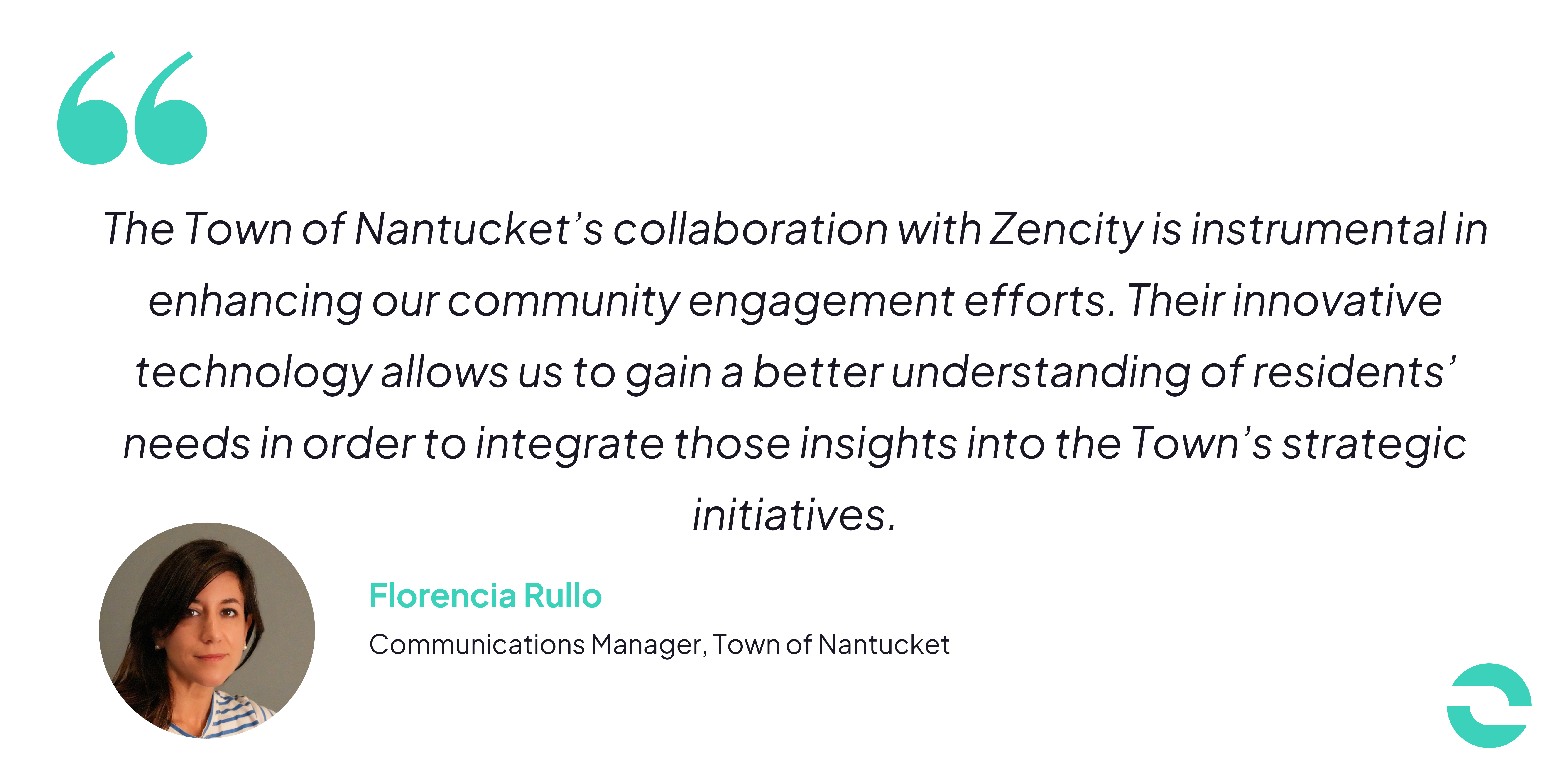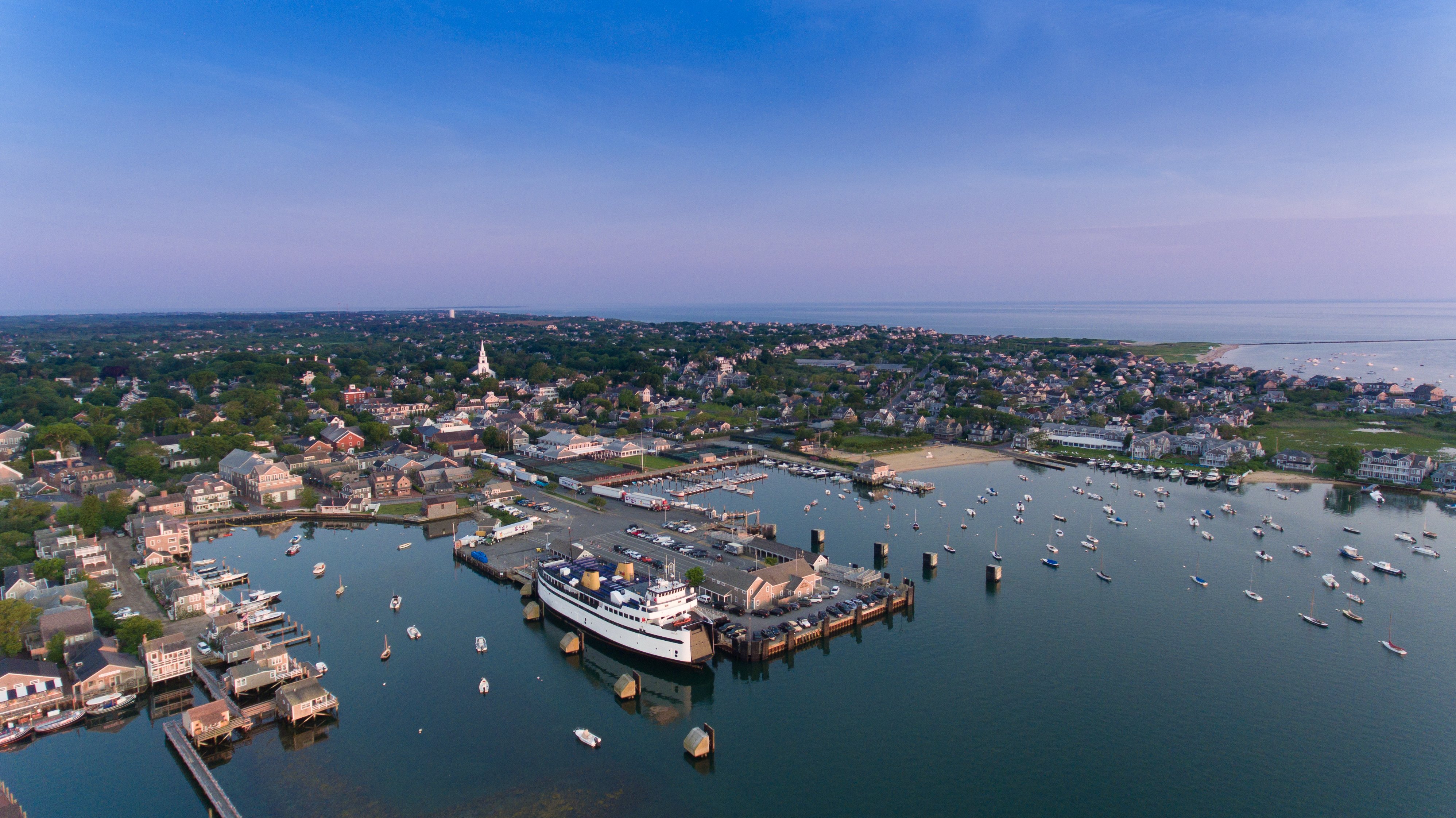Improving Nantucket's Transportation Program with resident feedback

Meg Maguire
Senior Customer Success Manager
Background
The Island of Nantucket, Massachusetts, renowned for its picturesque landscapes and historical charm, is located 30 miles off the coast of Massachusetts. In October 2018, the local government, under the Select Board's guidance, initiated a comprehensive strategic plan. This plan, a response to the unique challenges posed by its isolation and the need to address various community concerns, set forth ambitious yet achievable goals for the Focus Areas of Housing, Transportation, Environmental Leadership, Efficient and Effective Town Operations, and Healthy and Vibrant Community. Key initiatives within the Transportation Focus Area included exploring the implementation of a downtown parking management system. The plan also prioritized completing vital sidewalk connections, particularly from heavily populated areas like the mid-island area to the downtown area. Furthermore, it encouraged a modal shift in commuting habits, moving from single-vehicle use to alternative transportation methods. It acknowledged that as an island without bridges to the mainland and lacking a regional transportation system, Nantucket's transportation needs are distinct from those of a typical mainland town.
Aspirational Statement of the Transportation Strategic Plan
The Town's aspirational statement for transportation paints a future where Nantucket maintains its historical essence without succumbing to modern-day vehicular pressures. The vision is to develop a transportation system that emphasizes accessibility, affordability, and reliability, offering multiple modes of transport that reduce reliance on single-occupancy vehicles. The plan particularly highlights the safety of pedestrians and cyclists, aiming to create an environment where these groups can navigate the island safely and comfortably.
The Challenge
The primary challenge for Nantucket was evolving its transportation infrastructure to meet modern needs while preserving its unique historical and environmental character. The Strategic Plan needed to address the increasing demand for efficient transportation and the necessity to shift away from a car-centric culture. Furthermore, improving the existing infrastructure, such as sidewalks and bike lanes, was crucial for ensuring the safety and mobility of non-vehicular traffic. Yet, in order to better understand the nuances of residents’ transportation and mobility challenges, the Town needed to hear from a wider range of community members so that they can ensure that even today, 5 years after the conception of the original plan, the Town’s decisions align with residents' needs and priorities.
The Zencity Solution
In response to the need for more effective community engagement, Nantucket teamed up with Zencity, an AI-driven community engagement and trust-building platform, to launch a set of comprehensive surveys as a central part of their strategy. The first survey ran between June and July 2023, reaching a wide demographic with over 1,000 participants. Remarkably, it achieved a high completion rate of 75%, indicating strong community involvement.
The survey, facilitated by Zencity's advanced AI and data analytics tools, was designed to gather detailed insights into the town's traffic patterns, parking requirements, and residents' perspectives. The key takeaways from the report revealed that 82% of respondents were in favor of adding vehicle limitations (parking requirements, vehicle permits, resident vehicle allocation on ferries, etc.) to curb vehicle congestion. Additionally, 93% of respondents support a strategy that commits to improving safety and efficiency.
In addition to the survey, the Town created an Engage site focusing on the plan to keep residents educated and informed on any updates and future engagements around the topic.
See Nantucket’s Demo Engage page →
The Impact
The partnership's immediate impact was evident in the improved response rates to transportation surveys and the efficient processing of large data volumes. The AI-driven analysis allowed for quick identification of patterns and trends, facilitating informed decision-making and policy formulation.

The Future
Looking ahead, Nantucket plans to continue its path of innovation in transportation:
- Further integration of AI-driven tools for community feedback and data analysis.
- Ongoing development of pedestrian and cycling infrastructure.
- Implementation of data-informed policies to continually improve traffic flow.
Nantucket's community outreach on Transportation showcases how historical communities can embrace modern technological solutions to address their unique challenges, setting a benchmark for sustainable and community-centric transportation planning.
Nantucket plans to continue leveraging AI in its strategic plan, focusing on educating residents and gathering feedback. Two significant surveys are in the pipeline: the Strategic Plan Focus Survey and the Townwide Community Survey. The aim is to use AI for data collection and to better analyze and understand community needs, ultimately enhancing decision-making and service delivery.
%20copy-1.png?width=544&height=120&name=Logo_black%20(1)%20copy-1.png)




